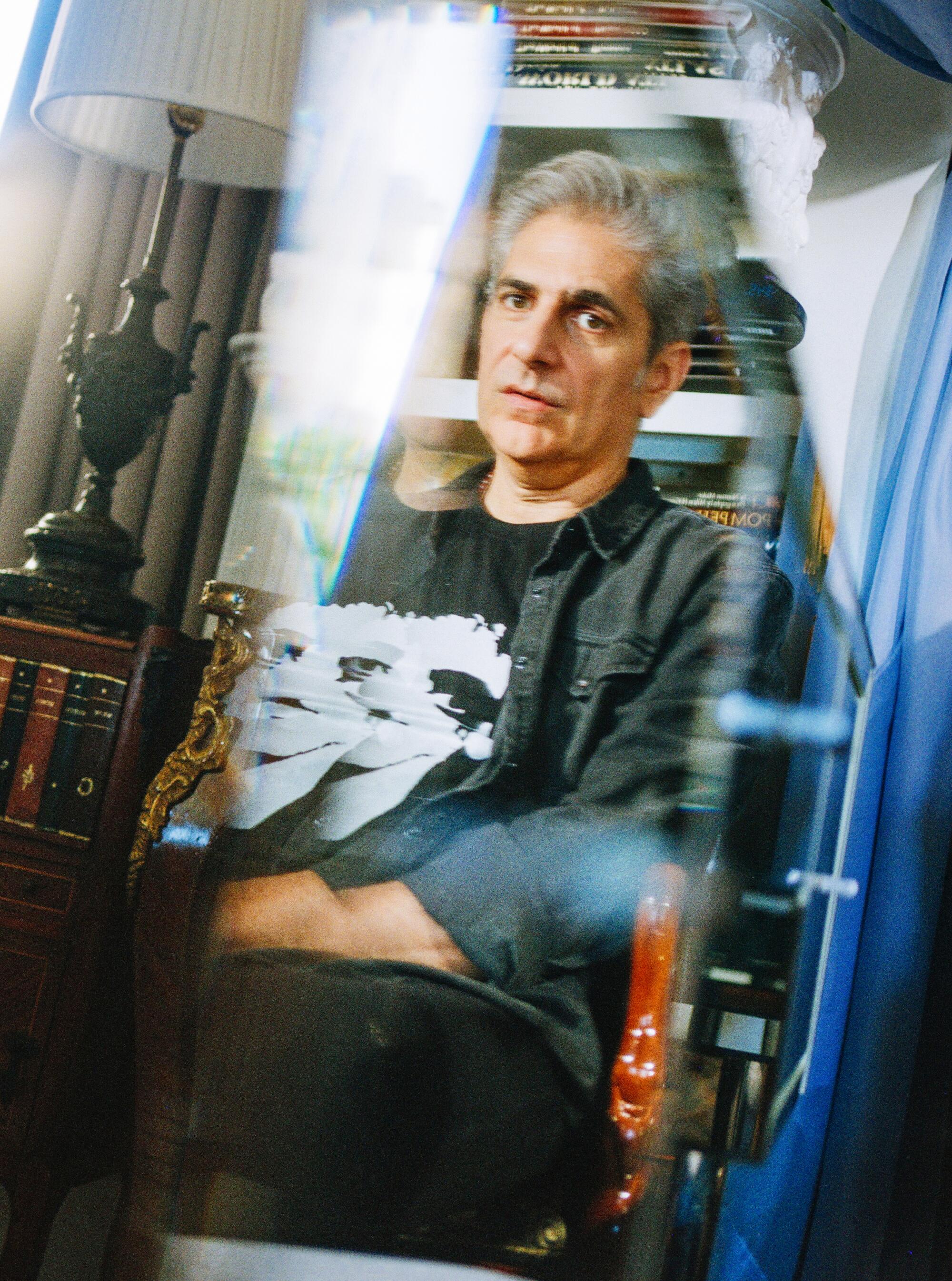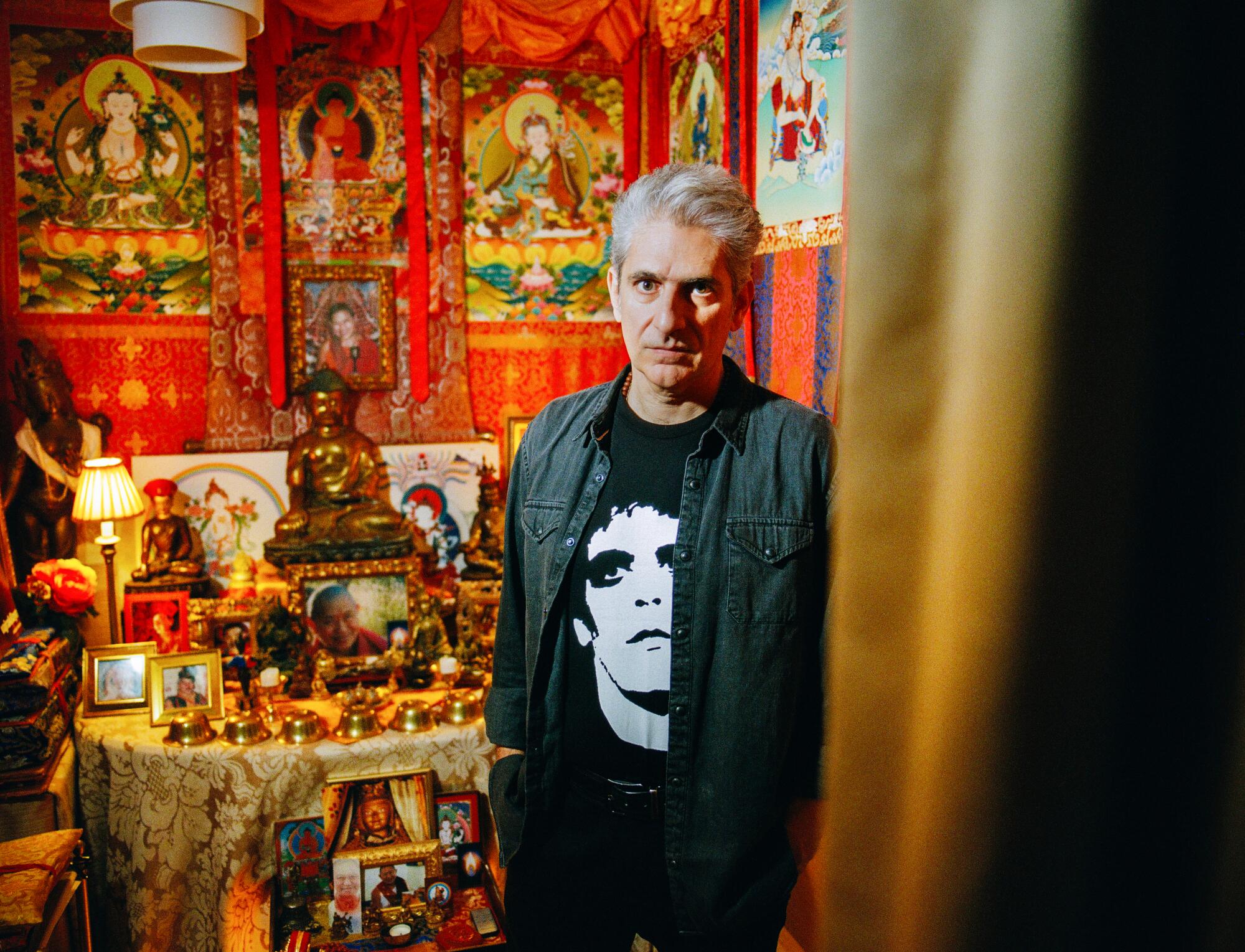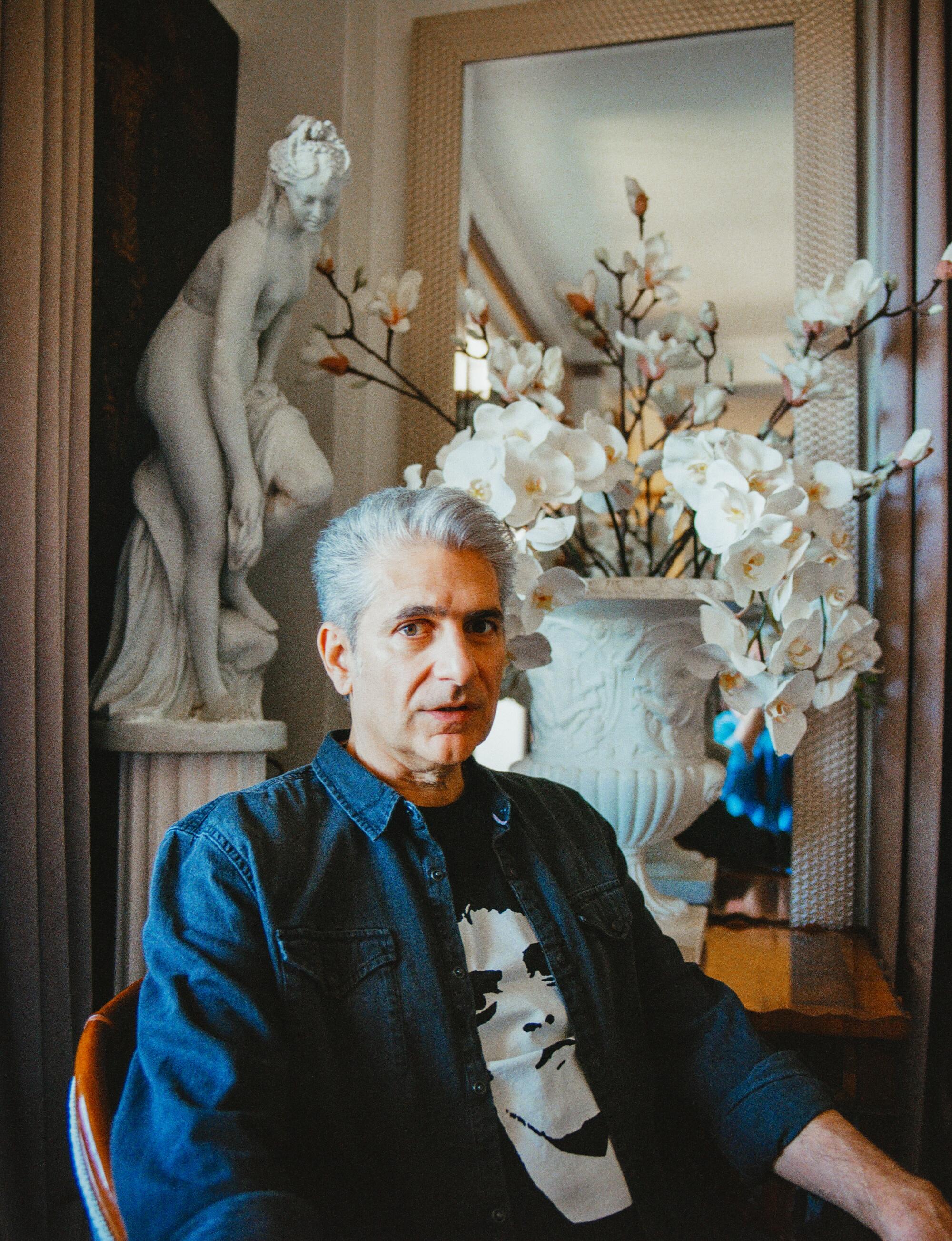- Share via

In the new season of HBO Max’s “The White Lotus,” Michael Imperioli plays Dominic Di Grasso, a Hollywood hotshot in a downward spiral. His marriage imploding because of his infidelity, he’s traveled to Sicily with his flirty widowed father Bert (F. Murray Abraham) and his disapproving son Albie (Adam DiMarco) to reconnect with their family’s Italian roots. (Dominic’s wife and daughter were also supposed to come but, well, they want nothing to do with him now.) Nursing a hidden sex addiction and desperate to win back Albie’s respect, Dominic tries being a good dad when he’s not busy secreting prostitutes into his hotel room at night.
It’s a terrific, weathered performance — not that Imperioli has any interest in watching it.
“My wife saw the first two [episodes] and she loves it,” he says over a video call from his New York home in mid-October. “I don’t really watch myself much anymore — I usually let a lot of time pass before I do.” He’s been acting long enough to know it’s not good for him to revisit his recent work too soon. “I get in my head and I can’t be objective,” he says. “I start not liking what I was doing and questioning things. It’s not fun.”
At 56, Imperioli is no longer the scrawny kid who dared mouth off to Joe Pesci’s volcanic gangster in “Goodfellas.” Probably still best known for his Emmy-winning role as Christopher Moltisanti in “The Sopranos,” he’s introspective and sincere in conversation, his gray hair and black-rimmed glasses nicely framing his handsome face, that distinctively streetwise voice unmistakable. Between wrapping up his popular podcast, “Talking Sopranos,” and recording a new album with his rock band, Zopa, he’s had plenty on his plate lately beyond just acting, although one senses he’s as proud of his rich family life with wife of 26 years Victoria and their three adult children. But with “The White Lotus,” Imperioli is savoring one of his most high-profile projects in years, portraying a damaged character full of middle-aged weariness and disarming vulnerability.

When Imperioli was approached about auditioning, however, he wasn’t familiar with writer-director-creator Mike White’s work. “They wanted me to tape two scenes,” he remembers, “which I understand because they might not have seen me in anything for a while — they want to see what I look like and where I’m at.” But after viewing his client’s tape, Imperioli’s manager gave him some tough love: “She said, ‘You should watch the show and then redo this audition. You’re not getting the tone right.’”
Imperioli heeded her advice, immediately grasping what he’d done wrong once he devoured Season 1. “I didn’t realize how funny the show was,” he admits. “When I started watching it, I was like, ‘Is this going to be some cynical statement about how everybody’s horrible?’ But Mike brought a lot of humanity and a lot of compassion. [The show] basically said, ‘We’re all flawed and we’re struggling with ourselves.’ He made it very entertaining and compelling and really funny and really touching. I was like, ‘This is the work of somebody really brilliant.’”
Now clear on the series’ precise balance of light and dark, he nailed the audition, soon flying to Italy for four months with the rest of the cast, who set up camp in the small town of Taormina.
“The Sopranos” stars Michael Imperioli (a.k.a. Christopher Moltisanti) and Steve Schirripa (Bobby “Baccalà” Baccalieri) are quarantined on opposite coasts, but they launched a podcast anyway. Oh, the stories they tell.
Season 1, which unfolded at a posh Hawaiian resort, took aim at its privileged one-percenters, but Imperioli appreciated that the new season expanded its thematic reach. “I think the themes of this season are a bit more timeless,” he offers, “which is cool for the setting, because there’s so much of the ancient world present in Sicily. A lot of it deals with generational things and families, but also shifting roles [with] masculinity, femininity.” But one constant across both seasons has been a close study of fatherhood. It’s a topic Imperioli knows intimately.
“I’m both a father and a son,” he says. “[My] storyline is very loosely based on a trip Mike took with his dad to Sweden, but I definitely thought of my own relationship with my dad, who’s 81 — he’s getting older. For the most part, my dad and I have had a really good relationship, but there’s times when I’ve been angry and frustrated with him, and vice versa. Yet there’s a love there, and a caring, that’s very deep and very instinctual. That was really important to this story, because [Dominic] is very frustrated with his dad — he’s seeing himself in his dad, which he doesn’t like. But despite all that tension, he’s taking [Bert] on a really expensive trip to Italy. So, obviously, there’s still this desire to make his father happy — there’s a nobility in that.”
As the season progresses, Dominic will confront Bert about his old man’s unfaithfulness, which he feels spurred his own tempestuous relationships with women. But Dominic’s sex addiction complicates matters. Imperioli wanted to learn more about the condition, his sympathy growing the more research that he did. “I know people who have struggled with that,” he says quietly. “Like food, it’s a particularly tricky addiction, because it’s something you integrate into your life. It’s not like cocaine where it’s just like, ‘I should never do this.’ Food, obviously, you have to have, and sex is something you want to have in your life in a healthy way.”

What was important for Imperioli was pushing back against the stigmas around sex addiction: “‘Oh, you just want to f— around. You want to be married and have the security and the love of a constant partner, and just f— whatever you can anyway.’ But that’s not what sex addiction is. Sex addiction is something that can be rooted in trauma and shame and guilt. You have this very brief, fleeting moment of pleasure, but as soon as that’s over, it’s anxiety, depression, remorse, guilt, regret. Those cycles, those highs and lows, get drastically higher and lower as the disease progresses.”
Unlike his anguished “White Lotus” character, Imperioli is in a good place. Although being a parent means the world to him, he and his wife are relishing their empty-nester status. (“It’s almost like we’re dating again,” he says, amused. “You can be spontaneous. We went on vacation and bought a one-way ticket: ‘We’ll go back when we feel like it.’”) And as viewers prepare to dig into another helping of “The White Lotus,” which launched late last month, he’s content to trust Victoria’s verdict on the show. He’ll watch it, eventually. But for now, he’s reminded of some wise counsel he received long ago.
“My [acting] teacher, she was very smart, her name was Elaine Aiken,” Imperioli says. “Her thing was always, when you did a scene, the only two questions that really mattered were, ‘Did you do what you set out to do? And if you didn’t, why?’ And with this, I did what I set out to do. Which is always a good feeling.”
More to Read
From the Oscars to the Emmys.
Get the Envelope newsletter for exclusive awards season coverage, behind-the-scenes stories from the Envelope podcast and columnist Glenn Whipp’s must-read analysis.
You may occasionally receive promotional content from the Los Angeles Times.










